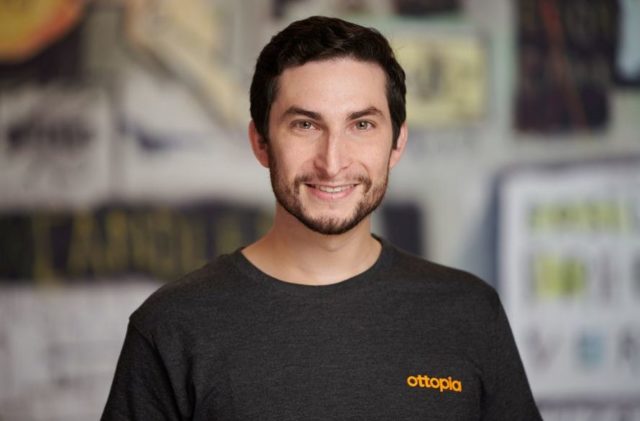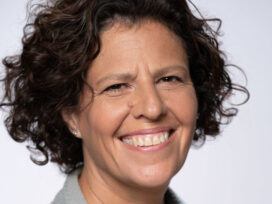
Aaron Applbaum’s VC Mizmaa is Open for Business
Located in Hong Kong, with Chinese investors, MizMaa Ventures entered the startup ecosystem only three years ago, in 2017, but by 2020 it already invested in 21 startups and soon to be 22.
According to IVC Online, the fund invested between $1 million to 6 million and had two exits Corephotonics acquired in January 2019 for $155 million, and Protego acquired in December 2019 for $40 million. In 2018 IVC ranked Mizmaa second place in Israel’s most active VC funds.
Mizmaa name is a combination of Hebrew Mizrach and Maarav – which means East and West. The fund’s co-founders are also combinations of East and West: Catherine K.C. Leung is from Chinese origin and Isaac Applbaum is a Jewish-American. His son Aaron Applbaum is a partner and manages the fund in Israel.
In an interview with Jewish Business News, Aaron Applbaum found to be very active. He moved and live in Tel Aviv with his wife one year ago, but he says, he already gets to know at list 1,000 people. Aaron spends most of his time networking. Meeting people, making phone called, having coffee with associates, and talking with the managers in the companies in the portfolio. He even knows Hebrew for small talk.
MizMaa focuses on five technology verticals that include artificial intelligence, mobility, cybersecurity, fintech/blockchain, and cloud/serverless computing.
It provides long-term investment capital, to early-stage technology companies and continues to help those companies grow through their advancement with marketing, finance, and systems expertise.
Aaron Applbaum graduated from Princeton University, School of Public and International Affairs. His independent research focused on the intelligence community, mid-east politics and cybersecurity.
He was also director of investments at Strategic Cyber Ventures LLC where he was responsible for identifying companies for investment, as well as played role throughout the investment evaluation and execution process. Previously, Applbaum worked at Hudson Bay Capital Management.
What is most important to you in a company you invest in?
The management team is for us, the primary feature. We want to see smart, dedicated, articulate, founders who are trying to solve a big problem and have done the necessary research to build a company. The right technological background is of course important and so is the chemistry between the founders and with us. We also want to see that the founders are taking on a problem that is large enough to justify millions of dollars of investment.
What industries are most interesting to you at this point?
We are focused on deep technologies where Israel is a global leader. Areas of particular interest are cloud computing, serverless computing, development operations, cybersecurity, cryptography, connected/autonomous vehicles, artificial intelligence (both on the hardware and software side), and we are starting a practice in digital healthcare as well.
What development will be in the next wave
We are seeing a proliferation and technologies that address issues of remote working, telecommuting, telemedicine collaboration and coordination of technology teams. We are also seeing really strong entrepreneurs going to the field of DevSecOps, automating the development cycle and infusing security earlier in the development process. We are also seeing continued movement from on-premises computation and storage to the cloud, multi-cloud, and hybrid cloud.
What has changed during the years you are active in the investment area?
Part of the beauty of early-stage companies and Venture Capital is always trying to be ahead of the curve while simultaneously allowing oneself to learn from successes and failures that are synchronous. An example of this is in the area of drones: many great startups have been built in the space, but the drone revolution was pushed later and later so many of the entrepreneurs building those solutions transitioned to the world of automotive disruption, where their skills and talents could be utilized in the nearer term.
There are of course some changes that are not inherent in our industry that have been brought on by external factors, like COVID-19. This black swan event created some changes around due diligence, challenging assumptions, understanding revenue projections and pipelines in a new and more critical way.
What industry have you invested in the past but will not invest again?
There is no area I have previously invested where I would totally not invest again. There are certain areas that I believe have been hurt in particular due to current realities around COVID-19. I think the shopping retail and commerce space is undergoing tremendous transition. We see the likes of Macy’s, J.Crew and other brick and mortar retail institutions struggling mightily.
The technology that supports this industry may not have the same home in five years from today that it had five years ago. Also the forces of Amazon and Walmart are so strong, that their actions disproportionately impact the verticals, and so investing in the space needs to be done very deliberately.
Are you an active or passive investor?
We are incredibly hands-on with our portfolio companies. Strategically and tactically. We help in business development, human relations, fundraising, and anything else that a portfolio companies needs of us.
We are not active in the way that some private equity funds are, imposing will buy a controlling board or owning a majority of the company, but we do hold bi-weekly, and sometimes weekly sessions with each of our portfolio companies to make sure they are taking maximum advantage of our help and support.
What influence has Trump’s or the Committee on Foreign Investment in the United States (CFIUS) had on your activity?
Honestly speaking, it has made no impact on our investing. It is something we monitor very closely, and it is something of which we are well aware. To round out the point on “business as usual,” we, in fact, have companies that are closing business with top-secret government organizations within the United States, we have companies that have been acquired by United States entities and the Trump administration has not been a deterrent.
In how many companies you already invested in them?
We have invested in 21 companies, and soon to be 22! All of them except for one with significant ties to Israel, we are hyper-dedicated to the region.
How much money under your management?
We have a couple hundred (USD) under management, a number which will hopefully grow in the coming quarters and years.
What is the largest investment you have done in Israeli companies?
The largest initial check that MizMaa writes is $6 million. We have written that check twice.
What is your advice for a startup to make contact with you? How to address the subject and the email itself to get a response?
MizMaa is remarkably responsive to the inbound inquiries of entrepreneurs looking for financing. A great way is through our professional email accounts, or through a LinkedIn message. The absolute best possible way is through a mutual connection. If an entrepreneur gets to us through someone in a portfolio company or respected mutual connection, we take that inbound interest as a top priority.
The subject line of the email can be as simple as “building a company in XYZ.” Or “Heard great things about MizMaa.” Or “raising seed money for a new venture.” If it is a little descriptive and shows knowledge of what we do, we will read your email for sure.








